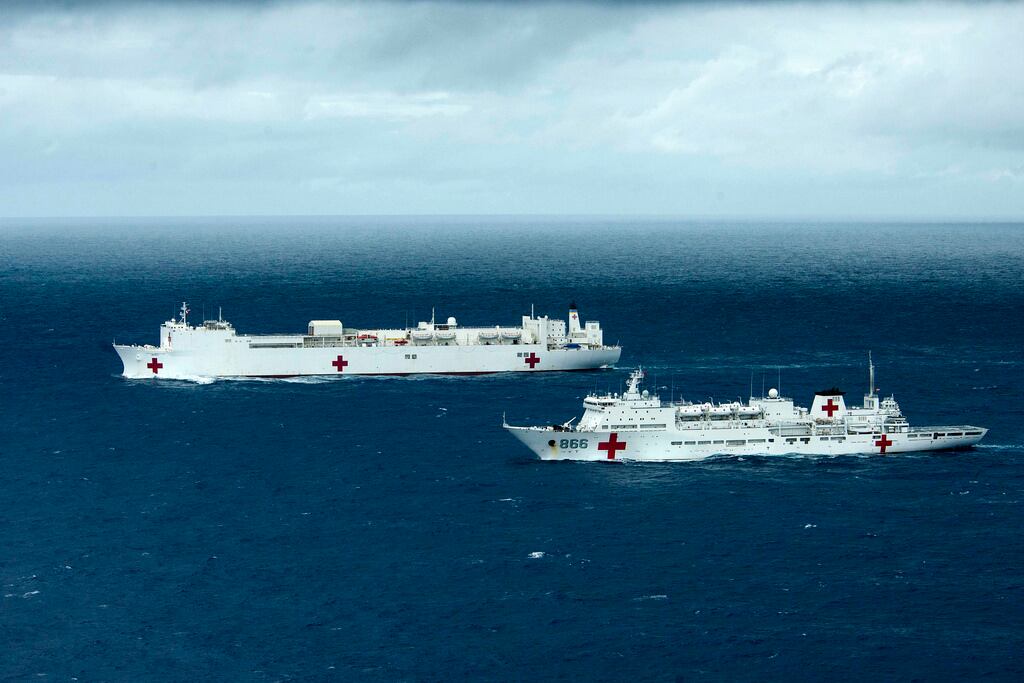SEOUL ― South Korea has high hopes for exporting its utility helicopter for the first time, as the Philippines look into buying the KUH-1 troop-carrying helicopter, dubbed Surion, in bids to modernize its armed forces.
Before flying back to the Philippines on June 5 after a three-day visit to South Korea, President Rodrigo Duterte attended a makeshift arms exhibition at Seoul’s Defense Ministry headquarters, where he boarded a Surion on the ground to examine the helicopter’s functions.
Right after going back to Manila, according to several Philippine media outlets, Duterte directed his Department of National Defense to look into buying Surion helicopters as an alternative to a botched deal to purchase 16 Bell 412EPI helicopters from Canada. The $233 million deal was reportedly canceled earlier this year after the Canadian government raised the issue of human rights record in the Philippines.
“Surion helicopters can accommodate 16 passengers as against Bell (helicopters), which could only load up to six passengers,” Philippine National Security Adviser Hermogenes Esperon Jr. was quoted by The Philippine Star as saying. “And if you look at their after sales, the availability of spare parts, Bell is proven because we have Bell helicopters, but (Surion) is near to us.”
The adviser hinted his government would consider 10 to 12 Surion helicopters.
South Korean arms procurement officials are cautiously optimistic about the potential deal with the southeast Asian country.
“We’ve heard that the Philippine Air Force created a task force for looking into the viability of procuring Surion helicopters, but we have yet to receive any formal request for purchasing Surion helicopters,” said Kang Hwan-seok, spokesman for Seoul’s Defense Acquisition Program Administration, or DAPA.
Surion manufacturer Korea Aerospace Industries, or KAI, expressed high hopes for the utility helicopter’s first overseas sale. The twin-engine light utility helicopter was built with technical assistance of Airbus Helicopters, formerly known as Eurocopter, under a 2006 deal valued at about $1.2 billion.
RELATED

“Once Manila selects Surion, that will be the helicopter’s first overseas sales, a meaningful step toward developing an exporting market in Southeast Asia,” said Kim Ji-hyung, head of KAI’s public relations team. “As the Philippines successfully operates KAI-built FA-50 light-attack aircraft, we believe the Southeast Asian country has credibility about our products, including the Surion helicopter.”
KAI specifically focuses on promoting Surion in the T-50/FA-50 customer nations, Kim added. The Philippines bought 12 FA-50 light-attack aircraft, modified from the T-50 supersonic trainer aircraft, while Iraq placed an order of 24 FA-50 jets. Indonesia bought 15 TA-50 trainer jet with attack capabilities, while Thailand purchased 12 T-50 trainers.
Since 2010, about 200 Surions have been ordered by the South Korean Army and Marine Corps to replace the aging fleet of UH-1H and MD 500 helicopters, with deliveries of civilian variants for local police patrols and medical evacuation.
Modeled after the SA 330 Puma, the helicopter can be used in a variety of applications, including troop assault, search and rescue, tactical lift, and liaison.
The rotorcraft can accommodate two pilots, two gunners and nine fully armed troops. Without arms and equipment, it can handle 16 troops. With a maximum takeoff weight of 8,700 kilograms, the helicopter can fly at a cruise speed of 279 kph.
The helicopter recently passed de-icing tests aimed at evaluating whether it can fly in a minus 30 degrees Celsius environment for at least 30 minutes without ice forming on the inside. The test took place at Sawyer International Airport, Michigan, with staff from both KAI and the South Korean Army joining U.S. Army personnel for the work, according to KAI.
Surion failed previous tests between October 2015 and March 2016 at the same site, facing doubts about its flight safety. The supply of Surion helicopters to the South Korean Army were subsequently suspended for a year to November 2017.
Email: jeff@defensenews.com
Jeff Jeong was the South Korea correspondent for Defense News.








